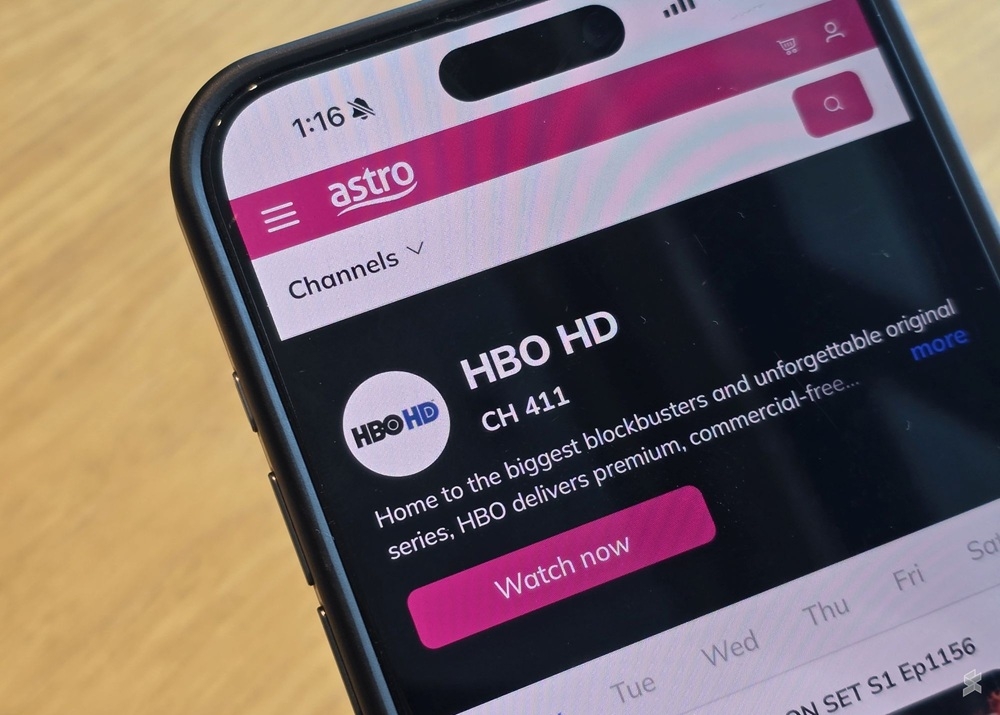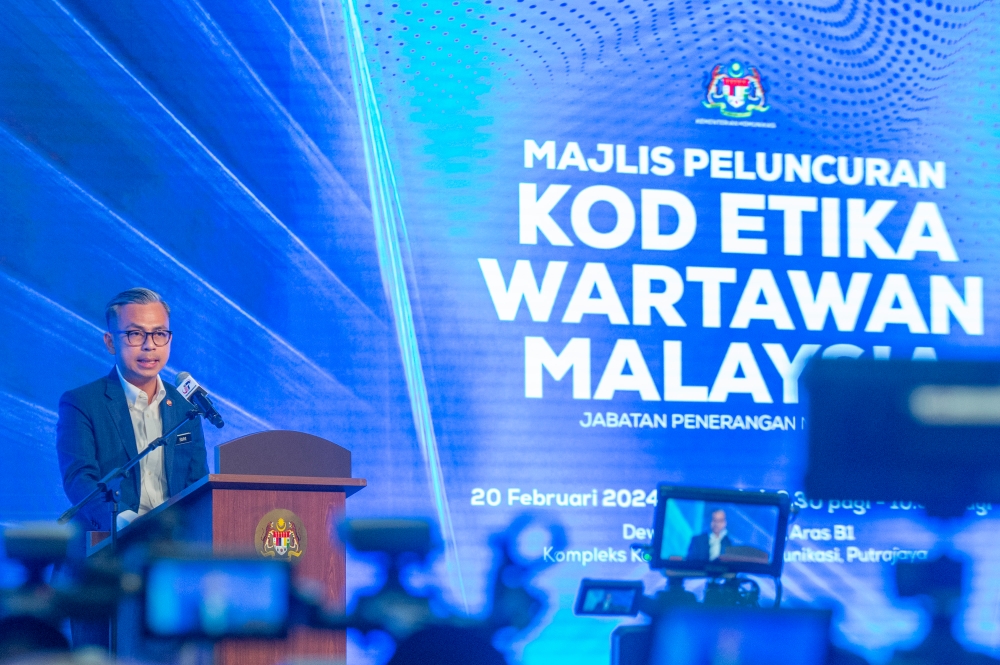PUTRAJAYA, Feb 20 — Communications Minister Fahmi Fadzil today launched the revamped Malaysian Code of Ethics for Journalists, while promising that it will not restrict media freedom of expression but rather a guideline for media agencies to carry out their duties.
He also expressed his reliance on the implementation of the upcoming Malaysian Media Council in overseeing journalistic standards and addressing any necessary actions concerning journalists or media organisations.
“No, the code of ethics has been in existence since 1989, we are only improving,” he said during the ceremony, insisting that it will not restrict the freedom of journalists.
“I personally, the ministry and the Information Department also at the same time feel that new technological changes have an impact on the industry or media companies,” he added.
Elaborating on the media council, Fahmi said it has many responsibilities, one of which is overseeing the registration processes of journalists and ensuring compliance with established standards.
“Our hope depends on the Malaysian Media Council that will be formed soon. The intention for the implementation of the media council is to be a body that will examine the aspects if any action needs to be taken by journalists or media organisations.
"So, I hope that the Malaysian Media Council can play a role, especially in ensuring that the level of journalism is at a high level," Fahmi said.
The code of ethics in 1989 was published by the Malaysian Press Institute (MPI).
Fahmi said that this latest version was drafted after an engagement session with MPI and the National Union of Journalists, Universiti Sains Malaysia and Universiti Kebangsaan Malaysia as well as representatives of the sponsoring committee of the Media Council.
"The new version of the code of ethics for journalists has been refined with the involvement of representatives of journalists and media organisations, and takes into account the role of media practitioners without interfering with lawsuits, colluding or restricting journalists' freedom of expression in reporting.
"However, there is no absolute freedom for any individual or organisation to make untrue statements. In this context, the existing law is sufficient to ensure that public order is not threatened," he said.
The code of ethics for journalists launched today aims to be a reference source for the management of media certification cards.
Among others, the code tells journalists that they act as a voice for a plural society as well as agents facilitating dialogue; that they must be transparent and have integrity when carrying out their duties and they are also encouraged to act fairly in conveying information.
The code holds that news is also not influenced by personal interests; that journalists must validate and check the accuracy of the information before dissemination and to respect the privacy and confidentiality of sources.
The code includes an understanding of the law among journalists, acts and policies related to the scope of their duties, and prioritises the continuous improvement of journalistic skills.
Fahmi affirmed that the Information Department has the right to ban or cancel the media certification card under the journalists’ code of ethics when asked.
“Yes, JaPen has the right to cancel because they are the body that issues the media certification card,” he said, using the Malay abbreviation for the department.
He also said that JaPen will examine complaints and issues involving compliance with journalistic ethics.
Fahmi said that as of February 16, a total of 9,750 media practitioners from 152 agencies hold JaPen media certification cards.
From the total number of agencies, four are official government media, 38 local media, 60 online media and 50 international media.
Fahmi stressed that defamation cases were growing at a faster rate nowadays and needs to be addressed through accurate reporting.
He also said that society needs to be wise in evaluating the trustworthiness of information it receives.



















